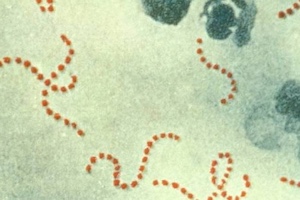Japan Experiences Outbreak of “Flesh-Eating Bacteria” with 50% Mortality Rate.

Recently, multiple regions in Japan have experienced outbreaks of a rare and deadly bacterial infection known as "flesh-eating bacteria" (Necrotizing Fasciitis). This epidemic has been rampant in Japan, setting a record for the highest number of cases for the same period in history, with nearly a thousand people infected. This situation has also caused considerable alarm among the Taiwanese population.
According to the Japanese Ministry of Health, the mortality rate after infection with this bacterium is as high as 50%, leading to widespread national concern and panic. The term "flesh-eating bacteria" refers to Group A Streptococcus, a common bacterium that can cause necrotizing fasciitis and even trigger "Streptococcal Toxic Shock Syndrome (STSS)," which can lead to organ failure and death, hence the nickname "flesh-eating bacteria." Doctors indicate that when a skin wound is infected with Group A Streptococcus, tissue necrosis can easily occur, making the wound appear as though "a chunk has been eaten away." Group A Streptococcus is related to Streptococcus pneumoniae, and among children under the age of 15 with throat inflammation symptoms, about one-third are infected with Group A Streptococcus, making it one of the most common bacterial infections in children.
Since early June this year, major hospitals across Japan have been receiving numerous patients infected with the "flesh-eating bacteria." This bacterial infection rapidly destroys the patient's skin, fat, and muscle tissues, with the disease progressing very quickly. Without timely treatment, it can lead to death within a few days. Currently, the infection cases are concentrated in major cities such as Tokyo, Osaka, and Fukuoka, with the risk of spreading to other regions.
In response to this epidemic, the Japanese Ministry of Health has swiftly implemented several emergency measures, including enhancing public health awareness, improving medical response capabilities, and strengthening monitoring and reporting.
Medical experts emphasize that early detection and prompt treatment are key to reducing the mortality rate of "flesh-eating bacteria." They recommend that anyone exhibiting symptoms such as high fever, severe pain, skin redness, or the appearance of purple patches should seek medical attention immediately. Patients with existing wounds or post-surgery wounds should be especially vigilant to avoid infection risks.
The outbreak of the "flesh-eating bacteria" epidemic poses a significant challenge to Japan, but with the joint efforts of the government and the entire nation, it is believed that this crisis can be overcome. The Japanese Ministry of Health urges all citizens to remain calm, actively cooperate with preventive measures, and work together to get through this difficult time.
- 173 reads
Human Rights
Fostering a More Humane World: The 28th Eurasian Economic Summi

Conscience, Hope, and Action: Keys to Global Peace and Sustainability

Ringing FOWPAL’s Peace Bell for the World:Nobel Peace Prize Laureates’ Visions and Actions

Protecting the World’s Cultural Diversity for a Sustainable Future

Puppet Show I International Friendship Day 2020

